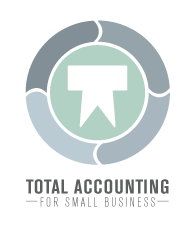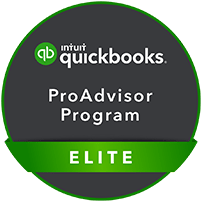Why can’t I get a straight answer on how to operate my business?
Lately, I’ve been doing a lot of small business consulting. With the changes due to the pandemic, many people are trying their hand at self-employment.
How do I start a business?
The classes or on-line guides on starting your own business can sometimes be driven by a business that just wants to sell services, without fully understanding your needs. There are also many free or non-profit websites (like government sponsored or SBA) that all give different advice. It can be a little intimidating, confusing and overwhelming at times.
Why don’t I get the same advice?
The reason for this is that there are many factors and considerations that determine the best strategy for you. I will review some of those considerations and circumstances that might determine how best to proceed.
Consideration #1 Do you have a built-in client base?
- If you are building your business from the ground up, you are fighting some odds:
- “According to data from the U.S. Bureau of Labor Statistics, about 20 percent of small businesses fail within their first year. By the end of their fifth year, roughly 50 percent of small businesses fail. After 10 years, the survival rate drops to approximately 35 percent.”
- It takes two to three years for a business to be profitable on average. When a company starts to make profit depends on how high its startup costs are.
- If you are starting franchise, you are fighting different odds:
- Start up costs, royalty fees, inventory, employees, accounting requirements add up quickly, so the beginning capital investment can range from thousands to millions depending on which franchise you chose.
- You have to follow rules from the larger brand about how you run your business
- If you are purchasing an existing business, you are fighting different odds:
- When you buy an existing business, you typically get complete control over its direction. However, with no set vision, infrastructure, or external guidance, your business could struggle as you figure out the best way to run things.
- You don’t always know exactly what you’re purchasing unless you do some serious due diligence and review of the financial reporting history
Consideration #2 How is your business going to be funded?
- If you are self-funding, you typically need another source of funding for your household living expenses for at least the first 2-3 years. Around that time, you will be able to start paying yourself back. Then around the 3-5 year average, your business will be able to sustain itself and provide a source of income to you. This is the reason most small business don’t last: they run out of money before the business is profitable enough to sustain them.
- If you have loans for your initial investment, your business growth will be off to a great start, but your growth will be slower because the profit your business makes will be needed to pay back the loans instead of re-investing in the growth of your business.
- If you have shareholder or capital investors, you need to be very clear, with written and signed agreements up front regarding all the possibilities and how that impacts not only you as the owner, but all of your investors/shareholders because they have ownership in the business.
- When is the funding going to occur (up front, on a fixed schedule, upon reaching certain benchmarks)?
- How is the funding going to occur (sweat equity, cash infusion, purchase of stock shares, contribution of property)?
- What happens at each benchmark if the goals of the investors/shareholders are not met?
- Then also, when & how are the investors/shareholders going to be compensated or reimbursed for their funds?
- What happens if the funds are not available for compensation or repayment?
Consideration #3 How will you get paid? These are broad generalities and there are exceptions to each of these, of course. It is best to have a working relationship with your financial advisor and tax professional to help guide you through these steps based on your specific situation.
- Sole proprietors and single-member LLCs can just take draws out of their business account to pay themselves personally because they are taxed on the profits from their business whether they leave the money in the business account or take it out. ***However, you will be subject to self-employment taxes in addition to your income taxes, so be sure to set aside some of that draw money to cover these taxes.
- Multi member entities (Partnerships, S Corporations & C Corporations) will be paid according to the operating/shareholder agreements. Partnerships need to also be aware that their share of the net income might also be subject to self-employment taxes in addition to income taxes, so be sure to set aside some of that draw money to cover these taxes.
Consideration #4 How will my income from my business get taxed?
- Sole proprietors, single-member LLCs, partnerships and S Corporations are “flow through entities” this means, they do not pay any income tax at the federal level. This income is reported, taxed and paid at the personal level.
- C Corporations are considered their own entity by the IRS. So, they will pay all their own income tax and the income that they distribute in dividends are then also taxed by the recipients at the personal level. This is a case of double taxation since the C Corporation paid tax on that net income and the shareholders will pay income tax on the dividends.
Consideration #5 How will this affect my personal income taxes?
- Sole proprietors and single-member LLCs report their income on a Schedule C to calculate the net income of the business. That net income gets added to all your other sources of income when computing the income tax. Additionally, the net income is subject to self-employment taxes, that get added to the income tax before the total taxes are calculated.
- Partnerships file a tax return with the IRS reporting the business income, expenses, net income and the percentage allotted to each partner. Each partner is then issued a K-1 which is the form that is their allotted percentages. This income then gets added to all your other sources of income when computing the income tax. Additionally, the net income is subject to self-employment taxes, that get added to the income tax before the total taxes are calculated.
- S Corporations file a tax return with the IRS reporting the business income, expenses, net income and the percentage allotted to each partner. Each partner is then issued a K-1 which is the form that is their allotted percentages. This income then gets added to all your other sources of income when computing the income tax. (note, that no self-employment taxes are added because the S Corporation shareholder is required to have payroll compensation that is already subject to payroll taxes)
All these different considerations (plus others not specifically listed) impact what type of entity structure you should use, how much capital investment will be required, how much industry knowledge is necessary, how much overhead you will carry and your requirements (if any) around how you can pay yourself…just to name a few.
Also, it is important to remember that entity types can change as your business cycles through different changes and reaches certain benchmarks. It is important to keep in mind these different entity structures because as your business fluctuates and your personal tax situation changes, it might benefit you to make an entity adjustment.
For example:
I generally advise a small business owner that is just starting out, with low overhead and no investor partners, to operate as a sole proprietorship because they are easy to operate and report and even easier to close (just stop generating income). The income tax reporting is fairly straight forward, with full advantage of any business losses (which are very typical the first couple of years in operation.)
I generally advise a small business owner that is just starting out, with no clients/customers, low overhead and no investor partners, to operate as a single-member LLC. This gives them some legal protection (not covered in this topic), but only has a small fee (depending on your state of organization) to get setup and close. The income tax reporting is fairly straight forward, with full advantage of any business losses (which are very typical the first couple of years in operation.)
Once the business is consistently (2-3 years) making between $30k-$50k net income, I recommend converting to an S Corporation. Then they can take advantage of the tax savings offered by this entity structure and the tax savings cover the additional cost to prepare and process payroll, and the extra tax return at year-end. However, you need to be careful to consider how this will affect your personal income taxes in combination with all your other sources of income/tax strategies.
Once the business is consistently (2-3 years) pushing the $200k net income, or the combined S Corp + other income sources are pushing the $200k adjusted gross income, I recommend converting to a C Corporation. This separates the business income from the personal. Then the personal income can stay below the $200k adjusted gross income (or whatever the income level is that fits your tax strategy) to reduce that big tax bracket jump and the corporation pays its own tax on the income it’s generating. It’s also worth noting that in addition to the double taxation of dividends, if the corporation has a business loss, that loss cannot “flow through” to help reduce the personal income tax as a reduction, whereas all the other entity types can.
So, although I can only give generic advise via this blog, I hope you have been able to glean some helpful information. If you’d like to schedule a free consult to answer any questions specific to your situation, I’d love to chat with you!
Best wishes & success in whatever way you measure it!
Leave a Reply Cancel reply
You must be logged in to post a comment.
-
About
Trudy's Taxes & Bookkeeping LLC provides individual and small business tax preparation, payroll, accounting, and consulting services to Surprise, AZ and surrounding cities of Sun City, Glendale, Peoria, Avondale, and Buckeye. Voted Best of Surprise, 2023.Privacy Policy and Terms of Service
Licenses and Certifications
Trust Seal















Share On